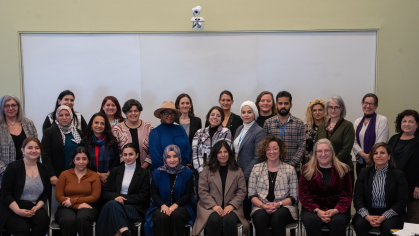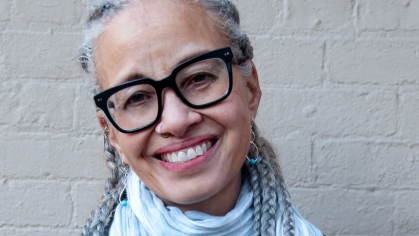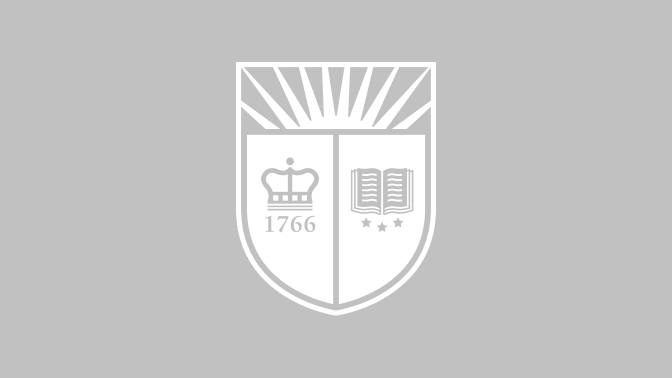SOGIE Workshop Engages with Community to Help Practitioners Establish Affirming Environments
Earlier this fall, the Rutgers School of Social Work Office of Field Education hosted a training session on Sexual Orientation, Gender Identity and Expression (SOGIE) for social work professionals with HiTOPS, an organization fostering strong and healthy young people of all identities by providing inclusive and youth-informed sex education and LGBTQ+ support for young people throughout New Jersey.
The workshop introduced the three separate yet related constructs of sexual orientation, gender identity, and gender expression to an audience of 350 participants, including agency supervisors, administrators, and staff from New Jersey and beyond who serve children and families as well as mental health and community service-focused organizations. Stacy Robustelli, PhD, Director of Education at HiTOPS, led the training. Dr. Robustelli provided an introduction of basic terminology that relates to each construct and discussed the implications for establishing affirming environments.
“Right now many people working in agencies are craving this kind of professional development in which they can open up the discussion for what it means to be affirming in any given organization,” said Dr. Robustelli. “It was clear that this audience in particular wanted to learn how to unpack all of the terms related to SOGIE and what they mean. Participants asked many follow up questions and shared wonderful comments about the importance of the training.”
“The SOGIE training was an important milestone for the School of Social Work’s Office of Field Education and the larger community as it signaled to students, faculty, and community partner agencies throughout New Jersey and beyond that we are serious about inclusion and equity,” said Nancy Schley, Assistant Professor of Teaching and Associate Director of Field Education in New Brunswick. “We invited partner agencies to join us in our effort to learn from each other and build positive, affirming relationships with people of all identities. The momentum created by this training provides the School of Social Work community direction and focus regarding important next steps. The knowledge gained by the training not only reverberates with attendees but also within the communities they serve.”
It is important for all practitioners to have a baseline understanding of SOGIE and pursue further educational opportunities, but it’s particularly crucial for those working with youth populations – especially given COVID-19’s toll on children and adolescents’ mental health. Studies show that if a young person has at least one affirming person in their life it reduces their risk of suicidality by 40%. “It’s staggering and shows that this kind of training is incredibly important for people working within our communities,” said Dr. Robustelli.
One of the challenges in teaching SOGIE is the speed at which information changes. Some many feel overwhelmed by the evolving terminology or might not know how to approach topics and conversations that are deeply personal. Dr. Robustelli suggests that people extend grace to those learning about SOGIE.
“As someone who teaches a variety of audiences about SOGIE, my goal is to meet people where they are to the best of my ability and have compassion for the fact that there are generational differences. People have different motivations, values, and educational backgrounds, and we have to recognize that not everybody has had the same experiences,” said Dr. Robustelli.
Although most attendees reported having little or no familiarity with SOGIE prior to the training, a post-event survey revealed that a majority of participants learned valuable takeaways and planned to implement what they learned in both their personal and professional lives.



